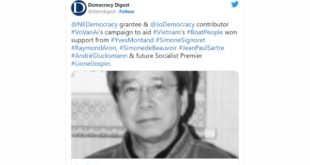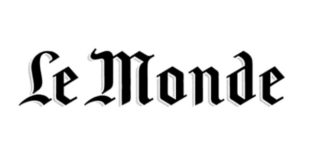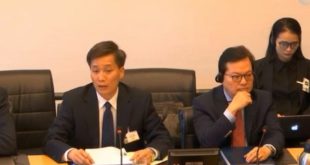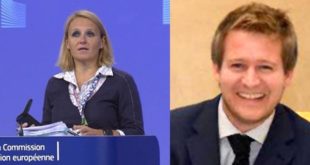HANOI, Nov 26 (AFP) – The US ambassador to Vietnam criticised Hanoi Friday for its treatment of the leaders of an outlawed Buddhist church as international concern mounted over religious freedom in the communist nation.
Michael Marine, who took up his post in September, said the government’s policy towards senior monks from the Unified Buddhist Church of Vietnam (UBCV) could trigger repercussions.
“On human rights and religious freedom we want Vietnam to live up to its commitments it made in 1991 when it signed on to the UN covenant on civil and political rights,” he told foreign reporters.
His comments came amid ongoing deliberations in Washington as to what punishment to hand down to Vietnam after the State Department placed it in September on its list of the world’s worst offenders on religious freedom.
Marine expressed concern that Thich Quang Do, deputy head of the UBCV, was prevented on Monday from visiting the church’s elderly patriarch, Thich Huyen Quang, who was hospitalised last week in a serious condition.
“We’ve made it clear in various conversations that this is very difficult to understand and I personally cannot see why he cannot be allowed to travel and why his disciples should not be allowed to see him,” he said.
Thich Quang Do, one of Vietnam’s most prominent religious dissidents, was stopped by police shortly after leaving Ho Chi Minh City en route to Quy Nhon city, 400 kilometres (250 miles) to the north.
The 76-year-old monk was ordered to return to the southern business capital and subsequently has been subjected to lengthy police interrogation sessions, according to the church’s Paris-based information arm.
Both Thich Quang Do and Thich Huyen Quang, 87, were placed under de facto house arrest in October last year. They were accused of being in possession of state secrets and trying to reorganise the church with the help of outside forces.
The UBCV was officially banned in 1981 because it refused to come under the ruling Communist Party’s control.
The foreign ministry denied on Monday that the two monks were under house arrest. Marine, however, said their movements appeared to be restricted.
“I have urged (the authorities) that they be allowed to travel and to communicate with each other,” said the ambassador, who visited Thich Huyen Quang in hospital in Quy Nhon last Sunday. “He considers himself not free to travel as he would like.”
Marine said this “along with all sorts of other information about the state of religion in Vietnam today” would determine what action is taken against Hanoi as a result of its “country of particular concern” designation.
The designation requires the US government to choose from a list of measures that includes economic sanctions. An announcement on the type of punitive action could be made by December 15 unless it decides to defer the decision for another 90 days.
Hanoi, which is extremely sensitive to criticism of its human rights record, is likely to respond furiously to whatever punishment is handed down. After September’s designation it lodged an official protest with Washington.
The two former foes established diplomatic relations in 1995, two decades after the US-backed Saigon regime fell to communist forces. The United States has swiftly become Vietnam’s most important trading partner.
ben/sm/ds
 Quê Me Quê Me: Action for democracy in Vietnam & Vietnam Committee on Human Rights
Quê Me Quê Me: Action for democracy in Vietnam & Vietnam Committee on Human Rights



